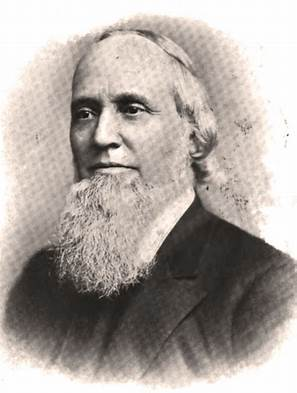
17. But the spirit’s joy bubbles over with cheery words, and still none are useless, yea, all is too little, and the soul can not pour forth itself as it gladly would desire, like Psalm 45:1 says: “My heart overfloweth with a goodly matter,” as if he were to say, I would gladly tell it forth, but I cannot; it is greater than I can express, so that my speaking is hardly a hiccough. Hence the saying in Psalm 51:17 and other places: “My tongue shall sing aloud of thy righteousness,” that is, proclaim, sing and speak it forth with rejoicing and jumping. And Psalm 119:171: “Let my lips utter praise”, like a boiling pot wells and bubbles forth.
18. The sixth fruit: they follow with acts. For it is as St. Paul says in Corinthians 4:20: “For the Kingdom of God is not in word, but in power.” Thus here the shepherds do not only say, Let us go and see, but they also went, yea, they do more than they say. For the text says, “They came in haste,” that is more than merely going, as they agreed to do, so faith and love always do more than they promise, and their affairs are alive, intertwined, active, bubbling over. So a Christian should be a man of few words and of many deeds, as he will surely be, if he is a true Christian. If he is not such a man then he is not yet a real Christian.
19. The seventh fruit is, they freely confess and publicly preach the Word that was spoken to them concerning this child, which is the highest work in the Christian life. In this we are to risk our body and life, our wealth and honor. For to believe right and live a good life quietly and with yourself is not attacking the wicked spirit very hard; but when we go forth and publish the same abroad, confess, preach and praise for the sake of the welfare of others: that he will not permit. Therefore Luke adds here that the shepherds did not only come and see, but they also preached about this child what they heard in the field, not only before Mary and Joseph, but before everybody.
20. Do you not think there were many who thought they were fools and insane people, in that they attempted, as coarse and unschooled laymen, to speak of the angels’ song and sermon? But the shepherds, full of faith and joy cheerfully became fools in the eyes of men for God’s sake. A Christian also does the same. For God’s Word must be considered as foolishness and falsehood in this world.
21. The eighth fruit is Christian liberty. This is bound by no work, but all works are alike to a Christian as they come to his notice. For these shepherds run to no desert, put on no hood, never shave their heads, never change clothing, time, food, drink nor any external work, they return again to their sheep cots and there serve their God. For a Christian character consists not in outward conduct, neither does it change any one as to his outward calling or position, but as to his inner state, that is, he possesses another heart, another mind, will and impulse that does even the work, which any person without such a mind and will does. For a Christian knows that all depends entirely upon faith; therefore he goes, stands, eats, drinks, clothes himself, works and lives as an ordinary man in his calling, so that one can not see his Christianity; as Christ says in Luke 17:20-21: “The Kingdom of God cometh not with observation; neither shall they say, Lo, here ! or, there ! for lo the kingdom of God is within you.”
22. Against this liberty the pope and his spiritual offices contend with their laws and chosen dress, food, prayers, sacred places and persons; they take themselves and every person captive by their soul snares with which they filled the world, as St. Anthony saw in a dream.
For they thought it depended upon our nature and works that we are saved. They call other people worldly, although they themselves are seven fold more worldly, since all their affairs are the doings of man, concerning which God has commanded nothing.
23. The ninth and last fruit of the Word is praising and thanking. For we are not able to give God any work or service for all the kindness and grace he bestows upon us, except praise and thanks which also spring from the heart, and do not need many organs, bells, and loud voices. Faith truly teaches such praise and thanks as are here related of the shepherds, in that they returned to their flocks glorifying and praising God. They are indeed contented, although they have not become wealthier, although they are not more highly honored, although they do not eat and drink better, and are not obliged to do their daily duties better.
24. See, in this Gospel you have a picture of a true Christian life, first according to its outward character, so that it glitters outwardly not at all, or very little in the eyes of the people, yea, is falsehood and the work of fools in the eyes of most people; but inwardly it is nothing but light, joy and salvation. Hence we see what the apostle means, when in Galatians 5:22 he relates the fruits of the Spirit and says: “The fruits of the Spirit,” that is, the works of faith,” are love, joy, peace, long-suffering, kindness, goodness, faithfulness, meekness, self-control ;” here there is no mention of persons, seasons, food, clothing, places or like chosen works of human device as we see swarming in the life of the Papists.
II. THE SPIRITUAL INTERPRETATION OF THIS GOSPEL.
25. But what it is to find Christ in such poverty, and what his swaddling clothes and manger signify, are explained in the previous Gospel; that his poverty teaches how we should find him in our neighbors, the lowliest and the most needy; and his swaddling clothes are the holy Scriptures; that in actual life we should incline to the needy; and in our studies and contemplative life only to the Scriptures; in order that Christ alone may become the man of both lives and that he may everywhere stand before us.
We should shun the books of Aristotle, of the pope, and of all men, or read them in a way that we do not seek the edification of the soul in them; but with them make use of the time and this life, as one teaches a trade or civil law. However it is not in vain that St. Luke places Mary before Joseph, and both of them before the child and says: “And they found both Mary and Joseph, and the babe lying in the manger.”
26. Now we said before, Mary is the Christian church, Joseph, the servants of the church, as the bishops and pastors should be if they preach the Gospel. Here the church is preferred before the prelates of the church, as Christ also says in Luke 22:26: “He that is the greater among you, let him become as the younger,” although that is now reversed; it is also no wonder, since they rejected the Gospel and exalted the prattle of men. The Christian church retains now all the words of God in her heart and ponders them, compares them with one another and with the Scriptures. Therefore he who would find Christ must first find the Church. How should we know where Christ and his faith were, if we did not know where his believers are? And he who would know anything of Christ must not trust himself nor build a bridge to heaven by his own reason; but he must go to the Church, attend and ask her.
27. Now the Church is not wood and stone, but the company of believing people; one must hold to them, and see how they believe, live and teach; they surely have Christ in their midst. For outside of the Christian church there is no truth, no Christ, no salvation.
28. From this it follows that it is unsafe and false that the pope or a bishop wishes to have himself alone believed, and that he poses as a master; for they all err and are inclined to err. But their teaching should be subject to the congregation of believers. The congregation should decide and judge what they teach; their judgment should stand, in order that Mary may be found before Joseph, the church be preferred to the preachers. For it was not Joseph but Mary who retains the words in her heart, ponders them, gathers them together and compares them. The apostle also taught this in 1 Corinthians 14:29-80 when he says: “And let not the prophets speak by two or three, and let the others discern. But if a revelation be made to another sitting by, let the first keep silence.”
29. But at present the pope and his followers have become tyrants, have reversed this Christian, godly and apostolic order, established an entirely heathen and Pythagorian order of things, that they may say, lulaffen and alfenzen, that is, they talk silly about whatever they wish. No one criticizes them, no one will oppose them, no one tells them to be quiet. And in this way they have quenched the Spirit so that among them one finds neither Mary, nor Joseph nor Christ; nothing but the rats, mice, vipers and serpents of their poisonous doctrines and hypocrisy.
30. This is not a Gospel of strife; for it teaches Christian morals and works, it does not clearly and publicly establish the different articles of faith.
Although in its spiritual teachings, (mysteries), as has been shown, it is strong enough; but the spiritual teachings (mysteria) do not strive and contend. There must be clear, public passages that plainly publish the articles of our faith.































